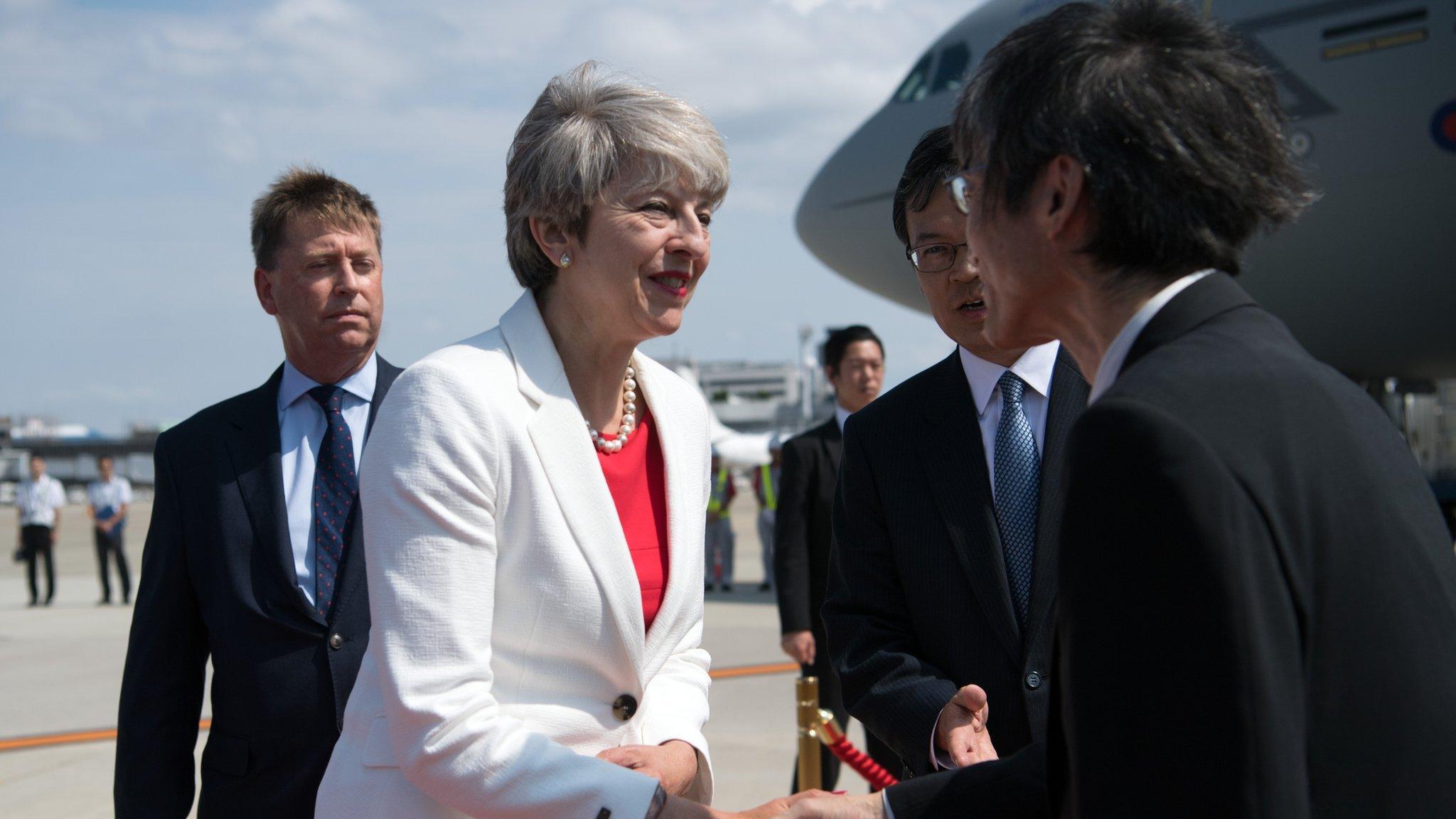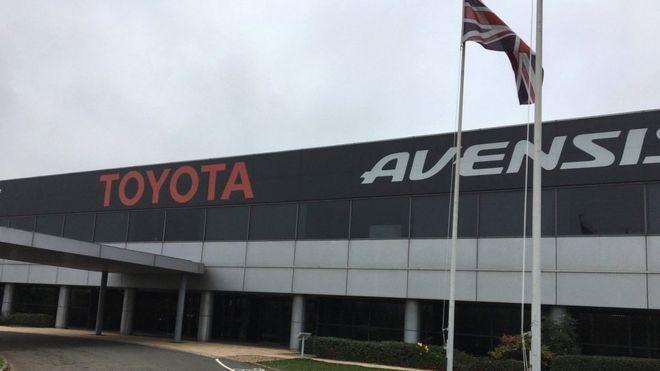May in Japan: How much does Japan want a UK trade deal?
- Published

The UK Prime Minister, Theresa May, is in Japan for a three-day visit to drum up business and trade opportunities. Her main aim is to try to convince Japan that London and Tokyo are perfect partners for the post-Brexit world.
But, here's a Reality Check on why she may find it a hard sell.
Building a future trading relationship between Japan and the UK is crucial for the prime minister on this trip.
She said her discussions with the Japanese Prime Minister, Shinzo Abe, "will focus on how we can prepare the ground for an ambitious free trade agreement after Brexit, based on the EU-Japan agreement, which I very much hope is nearing conclusion."
But she may find that the gap between what she hopes for and the current reality is very wide indeed.
May's Japan visit: Step up pressure on North Korea
Aston Martin in £500m UK-Japan deal
Video: Is Japan's economy bouncing back?
Japan is a major investor in the UK, no doubt. Japanese companies currently invest about £40bn in the UK, and more than 1,000 Japanese companies employ 140,000 people across the country.
About 40% of these Japanese companies are in manufacturing - and many of them chose the UK as their headquarters because they wanted access to the European Union's market.
So it is in Tokyo's interests to cement a trade deal with the UK as soon as possible.
Except that what Tokyo wants may not be what Mrs May can give - or not right now at least.
"Japanese companies are getting frustrated with the lack of answers from Mrs May on a concrete position vis a vis EU access," Seijiro Takeshita, from the University of Shizuoka, tells me.
"Mrs May can't answer that yet. And because she's not giving any concrete measures, that is exacerbating the worries of Japanese companies."
Privately, some in Tokyo's business circles are saying that Japanese companies based in the UK are already looking for alternative sites in Europe for their headquarters and manufacturing sites.
Japan's other priorities
Compound that with the fact that the focus for the Japanese is completing the "cars for cheese" trade deal they hammered out with the EU in July, and you can see why this trip may not go all that well for Mrs May.
"The EU is a much larger economy, and the reason why so many Japanese companies were in the UK in the first place was to get access to the EU market," says Mr Takeshita.
The EU-Japan deal is a priority for Tokyo.
It took four years and 18 rounds of negotiations, and it still needs to be ironed out, so "Japan will be distracted for now with that, and with the conclusion of the TPP-11 [Trans-Pacific Partnership] deal in Sydney", says Deborah Elms, from the Asian Trade Centre.
"Also, much of the investments from Japan into the EU are currently structured through the UK, so the Japanese will be looking for assurances from Mrs May about how they will be looked after, once the divorce between the UK and the EU is completed."
Add to that the fact the North Korea security issue will be very much on the minds of the Japanese, which may take the spotlight away from trade and on to security.
Again, all very bad timing for Mrs May.

For a quarter of a century, the UK has been a key part of Toyota's global operations.
Critical sectors
She is going to want to return to London with assurances from Japan that it will sign a similar deal with the UK to the one it signed with the EU.
After all, the UK's exports to Japan in 2016 were worth £11.6bn, a 10% increase from the year before.
Much of that came from goods and services such as machinery and finance, which make up important sectors of the UK economy.
The prime minister is taking with her a whole bevy of British companies to Japan, to show Tokyo that the UK means business.
But until the UK can spell out exactly what the divorce from the EU looks like, it's possible Mrs May won't come home with anything substantial.


